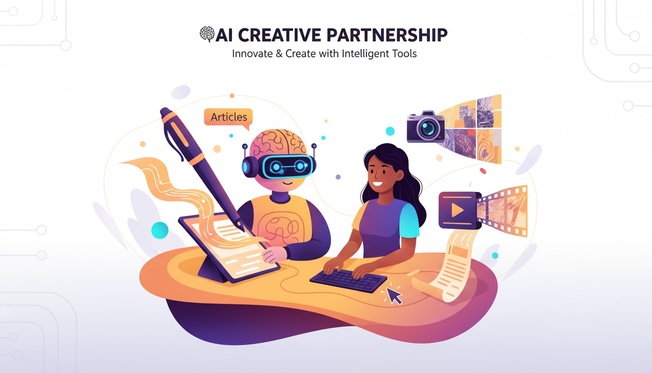
Let's be honest - search has changed dramatically over the past couple of years. We're not just dealing with the traditional Google results page anymore. Something much bigger is happening that every business owner needs to understand.
Here's What GEO Actually Means
Generative Engine Optimization (GEO) is the process of optimizing website content to boost visibility in AI-driven search engines such as ChatGPT, Perplexity, Gemini, Copilot, and Google AI Overviews [1]. Think of it this way: instead of trying to rank your website in traditional search results, you're optimizing to become the source that AI systems choose when they generate direct answers.
Here's where it gets interesting. These AI-powered platforms don't just give you a list of links like Google used to. They actually create comprehensive, conversational responses by pulling information from multiple sources and synthesizing it into one coherent answer. When someone asks a question, the AI processes that query, searches for relevant information, and delivers a complete response that might include text, images, or videos tailored specifically to what the user is looking for [2].
The fundamental purpose? Position your brand to appear in AI-generated results when users search for queries related to your products, services, or expertise [1]. While traditional SEO focused on getting people to click through to your website, GEO is about making sure your content becomes part of the conversation itself.
As Adam Binder, Founder of Creative Click Media, puts it: "GEO builds on traditional SEO but shifts the focus to align with how AI-enabled search platforms rank and showcase content" [2]. We're not just trying to rank anymore - we're trying to become the answer AI engines choose to generate.
Why Every Business Should Care About GEO Right Now
The numbers tell a pretty compelling story. ChatGPT now has over 180.5 million monthly active users, while Perplexity AI has seen its search volume explode by 858% in just one year, reaching about 10 million active monthly users [1]. That's not a small shift - it's a fundamental change in how people find information online.
But here's what really caught my attention: Gartner predicts traditional search volume will drop by 25% by 2026, with organic search traffic expected to decrease by over 50% as more people embrace AI-powered search [1]. If you're still putting all your eggs in the traditional SEO basket, you might want to rethink that strategy.
The reason this is happening is simple. People want immediate, comprehensive answers to their questions rather than having to click through multiple websites. Research shows that 79% of consumers are expected to use AI-enhanced search within the next year, and 70% already trust generative AI search results [1].
What does early adoption of GEO actually give you?
- Increased visibility beyond traditional search engines - you can reach people who are turning to AI platforms for their searches
- Better user experience - when AI cites your content, you're providing quick, relevant answers that keep customers satisfied
- Competitive advantage - most businesses haven't figured this out yet, so you can position yourself as a leader
- Brand authority - when AI platforms consistently choose your content, you become the trusted source
I've seen studies showing that top-performing GEO methods achieved a 30-40% improvement in visibility within AI-generated responses [1]. That's significant.
The good news? You don't have to throw out everything you know about SEO. Much of GEO builds on traditional SEO practices, just adapted for how AI systems work. Content quality, relevance, and authority still matter - but now there's more emphasis on clarity and conversational tone that makes sense to both humans and AI [3].
How Does GEO Stack Up Against Traditional SEO?
You've probably spent years perfecting your SEO game, and now there's this new thing called GEO making waves. What's the real difference? Let me break this down for you...
Where GEO and SEO Actually Agree
Here's the thing - despite all the hype about how different these approaches are, GEO and SEO share more common ground than most people realize. Both are trying to get your content noticed, just through different channels [4]. They both care about keywords, though GEO gets pickier about how natural and conversational those keywords sound.
Quality content still rules the day in both worlds. Whether you're trying to rank on Google or get cited by ChatGPT, you need content that shows you know what you're talking about [1]. Technical stuff like site speed and mobile optimization? Still matters for both.
And here's something I find interesting - both SEO and GEO keep you on your toes. Just like Google's algorithm updates used to send us scrambling, AI models are constantly evolving how they pick and choose content [1].
Where They Go Their Separate Ways
This is where things get interesting. Traditional SEO is all about getting people to click through to your website - you want that #1 ranking so badly you can taste it. GEO? It's playing a completely different game. It wants your content to become part of the AI's answer, sometimes without anyone ever visiting your site [5].
Think about it this way:
- What users see: SEO gives them a list of blue links to choose from; GEO serves up a complete answer pulled from multiple sources [6]
- How content gets judged: Google looks at your backlinks and keyword optimization; AI models care more about how clear and factual your information is [7]
- The end goal: SEO drives traffic to your site; GEO makes your expertise part of the conversation [8]
- How you measure success: SEO tracks rankings and clicks; GEO monitors how often you get quoted [4]
- Query patterns: People type short phrases into Google (around 4 words); they ask AI longer, more natural questions (averaging 23 words) [9]
The biggest shift? You need to structure your content so AI can easily grab the good stuff. Clear headings, bullet points, and well-organized facts become your best friends [7].
Why This Matters for Your Business
Look, the writing's on the wall. Gartner is predicting a significant drop in traditional search volume by 25% by 2026, with organic traffic potentially dropping by more than half [1]. That's not a small shift - that's an earthquake.
The numbers tell the story: 79% of people are expected to use AI search within the next year, and 70% already trust what these AI engines tell them [1]. We're talking about ChatGPT hitting 180.5 million monthly users, while Perplexity's search volume shot up 858% in just one year [1].
Even Apple's getting in on the action, announcing that AI search engines like Perplexity will be built right into Safari [9]. Google's monopoly on search distribution isn't looking as solid as it used to.
But here's what really caught my attention:
- Time spent: People spend an average of 6 minutes with AI search results versus the quick scan-and-click of traditional search [9]
- Context memory: AI remembers your previous questions and builds on them, creating more personalized responses [9]
- First-mover advantage: Companies optimizing for GEO now are establishing themselves as trusted sources before the competition catches on [8]
The smart play? Don't abandon SEO - complement it with GEO. The businesses winning in this new landscape are the ones covering all their bases [5].
Read the rest of the article - CLICK HERE

















Leave a Reply